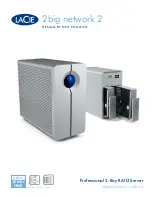
1-17
Cisco BPX 8600 Series Installation and Configuration
Release 9.3.30, Part Number 78-12907-01 Rev. E0, May 2005
Chapter 1 The BPX Switch: Functional Overview
BPX Switch Operation
Upgrades
Converting an IGX node to an interface shelf requires reconfiguring connections on the node because no
upgrade path is provided in changing a routing node to an interface shelf.
A BPX node, acting as a Hub Node, is not restricted from providing any other feature normally available
on BPX nodes. A BPX Hub supports up to 16 interface shelves.
Connections within tiered networks consist of distinct segments within each tier. A routing segment
traverses the routing network, and an interface shelf segment provides connectivity to the interface shelf
end-point. Each of these segments are added, configured and deleted independently of the other
segments.
Use the Cisco WAN Manager Connection Manager to configure and control these individual segments
as a single end-to-end connection.
Interface shelves are attached to the routing network through a BPX routing hub using a BXM trunk
(T3/E3 or OC-3) or BNI trunk (T3/E3). The connection segments within the routing network are
terminated on the BNI feeder trunks.
All Frame Relay connection types that can terminate on the BPX are supported on the BNI feeder trunk
(VBR, CBR, ABR, and ATF types). No check is made by the routing network to validate whether the
connection segment type being added to a BNI feeder trunk is actually supported by the attached
interface shelf.
Table 1-1
Tier Network Definitions
Name
Description
Annex G
A bidirectional protocol, defined in Recommendation Q.2931. It is used
for monitoring the status of connections across a UNI interface. Tiered
Networks use the Annex G protocol to pass connection status information
between a hub node and attached interface shelf.
BPX Routing Hub
A BPX node in the routing network that has attached interface shelves.
Also referred to as a hub node or BPX hub.
MGX 8200 Interface Shelf A standards-based service interface shelf that connects to a BPX routing
hub, aggregates and concentrates traffic, and performs ATM adaptation
for transport over broadband ATM networks.
IGX Interface Shelf
A special configuration of an IGX switch that is connected as a shelf to an
IGX routing hub. An IGX interface shelf is sometimes referred to as an
IGX A/F or feeder. The IGX interface shelf does not perform routing
functions nor keep track of network topology.
IGX Routing Hub
An IGX node in the routing network that has attached IGX interface
shelves. Also referred to as a hub node or IGX hub.
Feeder Trunk
Refers to a trunk that interconnects an interface shelf with the routing
network through a BPX routing hub. A feeder trunk is sometimes referred
to as an interface shelf trunk.
IGX/AF
Another name for the IGX interface shelf.
Routing Network
The portion of the tiered network that performs automatic routing between
connection endpoints.
VPI
Virtual Path Identifier.
VCI
Virtual Connection Identifier.
Summary of Contents for BPX 8650
Page 49: ...P A R T 1 The BPX Switch ...
Page 50: ......
Page 159: ...P A R T 2 Installation ...
Page 160: ......
Page 273: ...P A R T 3 Initial Configuration and Network Management ...
Page 274: ......
Page 311: ...P A R T 4 Configuring Connections ...
Page 312: ......
Page 487: ...P A R T 5 Troubleshooting and Maintenance ...
Page 488: ......
Page 533: ...P A R T 6 BPX Specifications ...
Page 534: ......
Page 555: ...P A R T 7 Appendices ...
Page 556: ......
















































